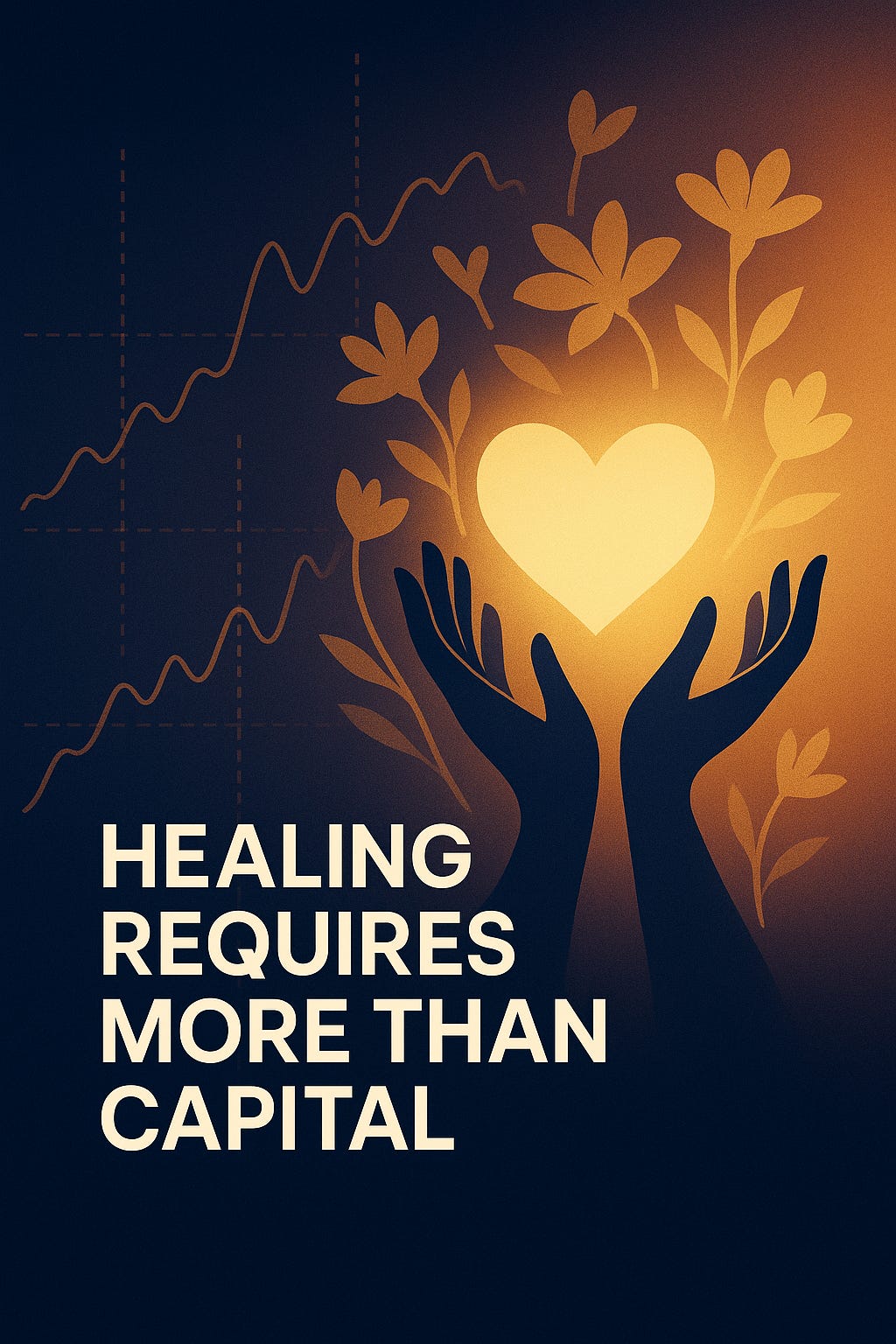What the Data Misses: Healing Requires More Than Capital
Wealth gaps are about more than dollars. Trauma, bankruptcy, and scarcity mindsets are inherited. Trauma‑informed financial coaching is part of the solution.
The numbers are stark: wealth gaps, homeownership disparities, underinvestment statistics.
But behind every statistic is a human story — one of hope, trauma, resilience, and often, deep financial fear.
Wealth building isn’t just about math. It’s about healing.
Healing the psychological wounds that shape our relationship with money, often passed down through generations.
The Weight of Inherited Trauma
Ancestral trauma can show up as fear of financial ruin, self-sabotaging behaviors, scarcity mindsets, or feelings of unworthiness around wealth.
Research in epigenetics suggests that trauma can even be inherited biologically — children of Holocaust survivors, for example, display different stress hormone patterns than those whose parents did not experience extreme trauma.
Financial trauma is no less real. It can stem from bankruptcy, addiction, job loss, or systemic discrimination. These emotional scars are passed down through family stories, cultural beliefs, and sometimes, even our DNA.
Why Capital Alone Isn’t Enough
When we talk about closing the racial wealth gap, we often focus on capital — and yes, capital matters.
But it’s not sufficient.
People who have internalized scarcity may:
Avoid investing, fearing loss.
Undercharge for their skills.
Distrust financial institutions entirely.
Communities that have endured centuries of extraction often carry collective memories of betrayal and loss.
A loan or a grant cannot fix that kind of wound.
Healing as a Financial Strategy
That’s where trauma-informed financial coaching comes in.
It recognizes that money is emotional — tied to our histories, our families, and our identities.
Healing financial trauma means:
Acknowledging inherited beliefs about money.
Understanding personal “money scripts.”
Creating safe spaces to talk about financial pain and possibility.
But personal work isn’t enough — we also need systemic healing: ending predatory lending, ensuring healthcare access, and making education truly equitable.
Building wealth requires both external resources and internal transformation.
We need capital — and we need healing.
Data can show us where the gaps are.
But it can’t tell us how to mend the wounds.
That work happens in our families, our communities, and ourselves.
Call to Action
Reflect on your own money story.
What beliefs about wealth did you inherit?
Have conversations about financial trauma with loved ones, and explore trauma-informed financial coaching or therapy as part of your journey.
At The Wealth Salons, we create spaces to heal, to learn, and to build together.
Join the conversation. Share this post with someone who needs to hear it, and connect with The Wealth Salons to learn how you can help build wealth in The Great 38. Let’s co-create a future where every community has the tools to thrive.
Ready to build with us?
Whether you’re a founder, operator, or advisor—if you’re brilliant and ready to execute, we want to hear from you.
Stay Connected
Follow us for more insights, founder stories, and new opportunities:
🔗 LinkedIn | 𝕏 X | 📸 Instagram | 📬 Newsletter


